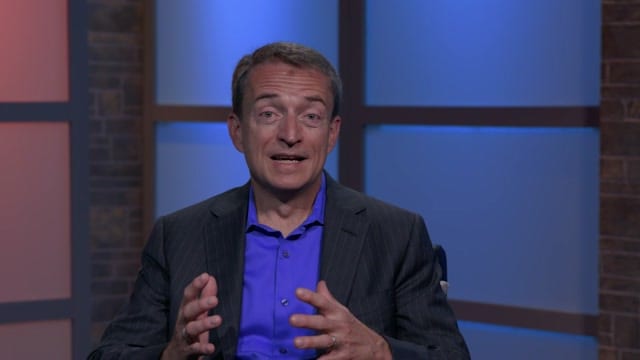
Making organizational decisions can sometimes be a challenge. CEO of VMware, Pat Gelsinger, explains the role of the team leader in making important decisions.

Making organizational decisions can sometimes be a challenge. CEO of VMware, Pat Gelsinger, explains the role of the team leader in making important decisions.
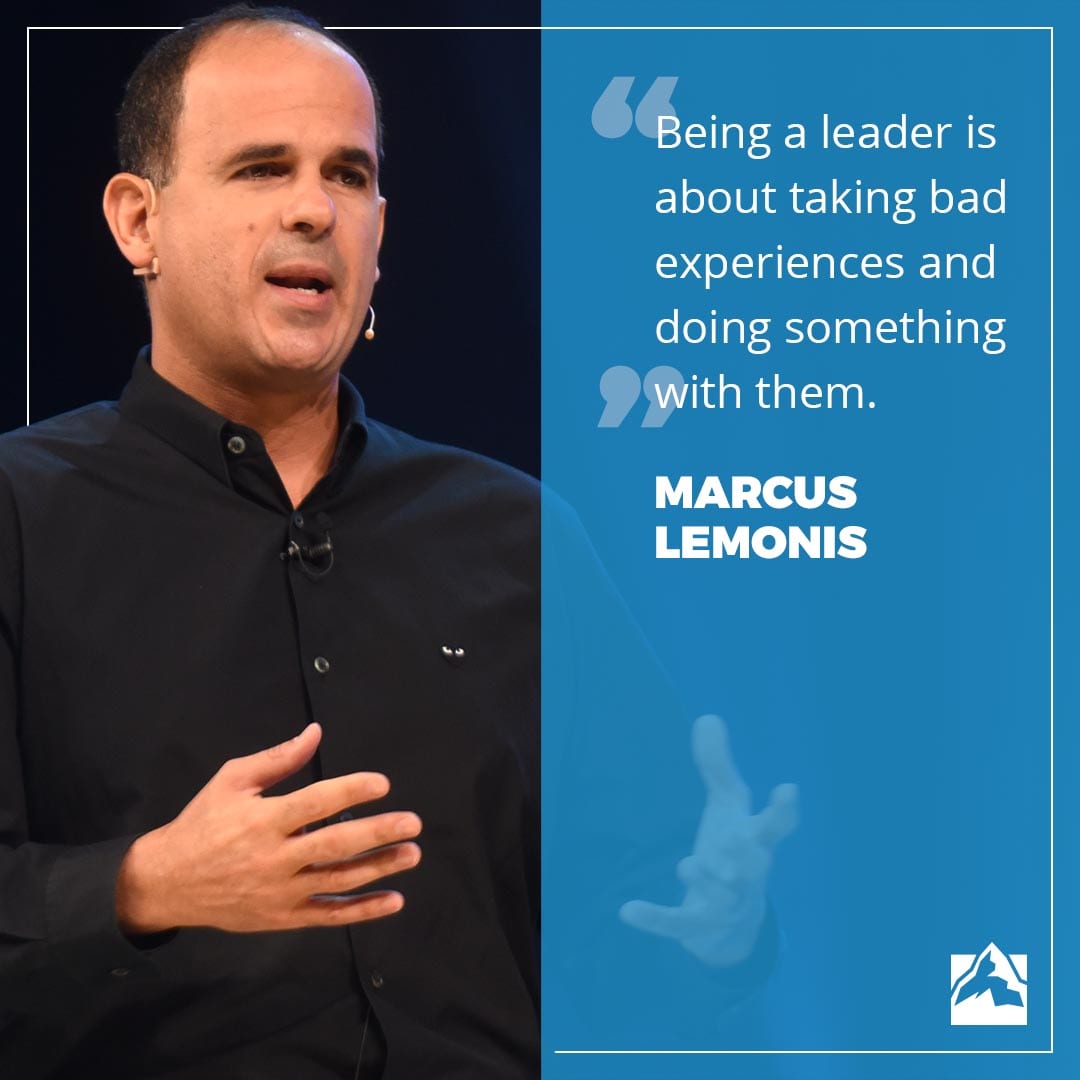
Being a leader is about taking bad experiences and doing something with them.
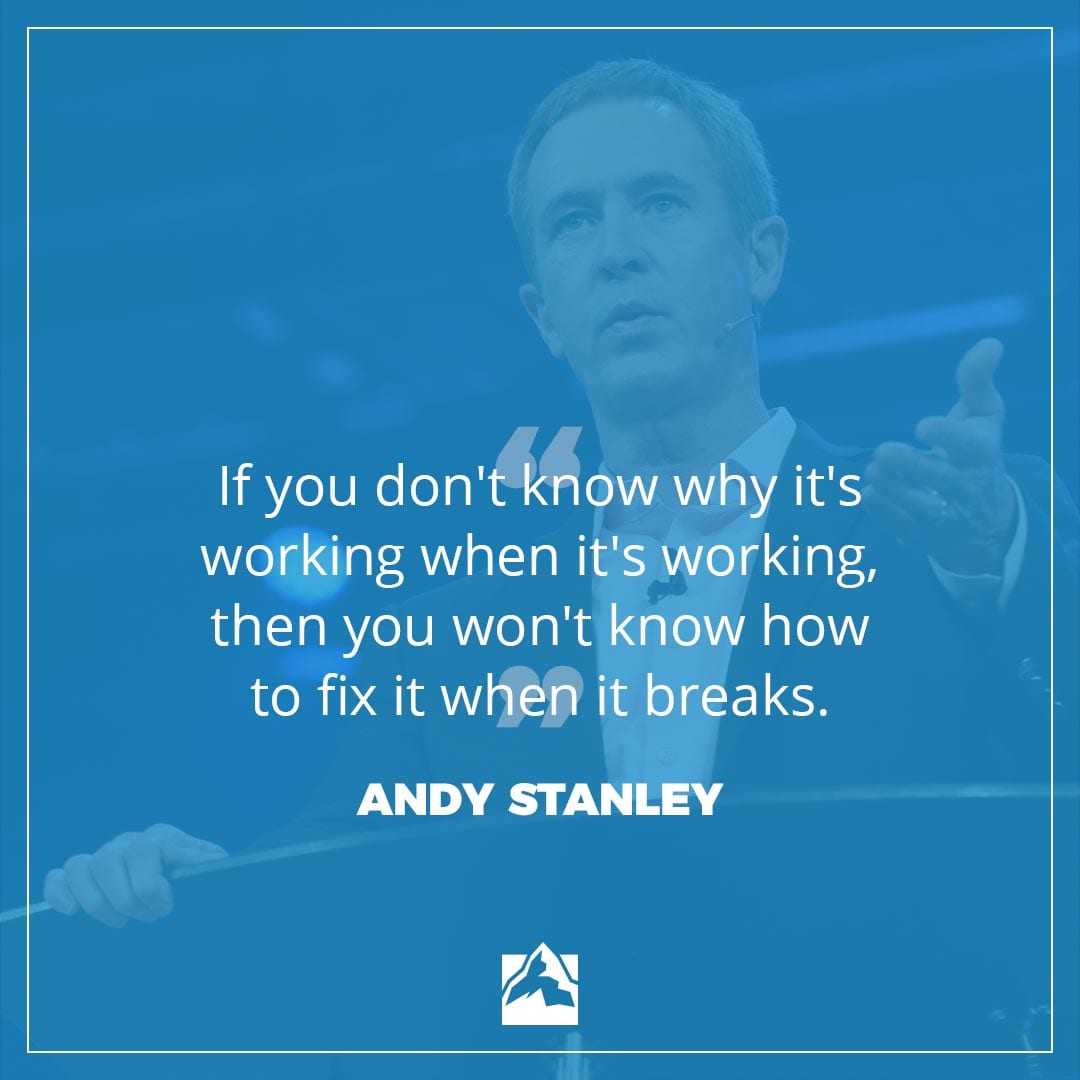
If you don’t know why it’s working when it’s working, then you won’t know how to fix it when it breaks.
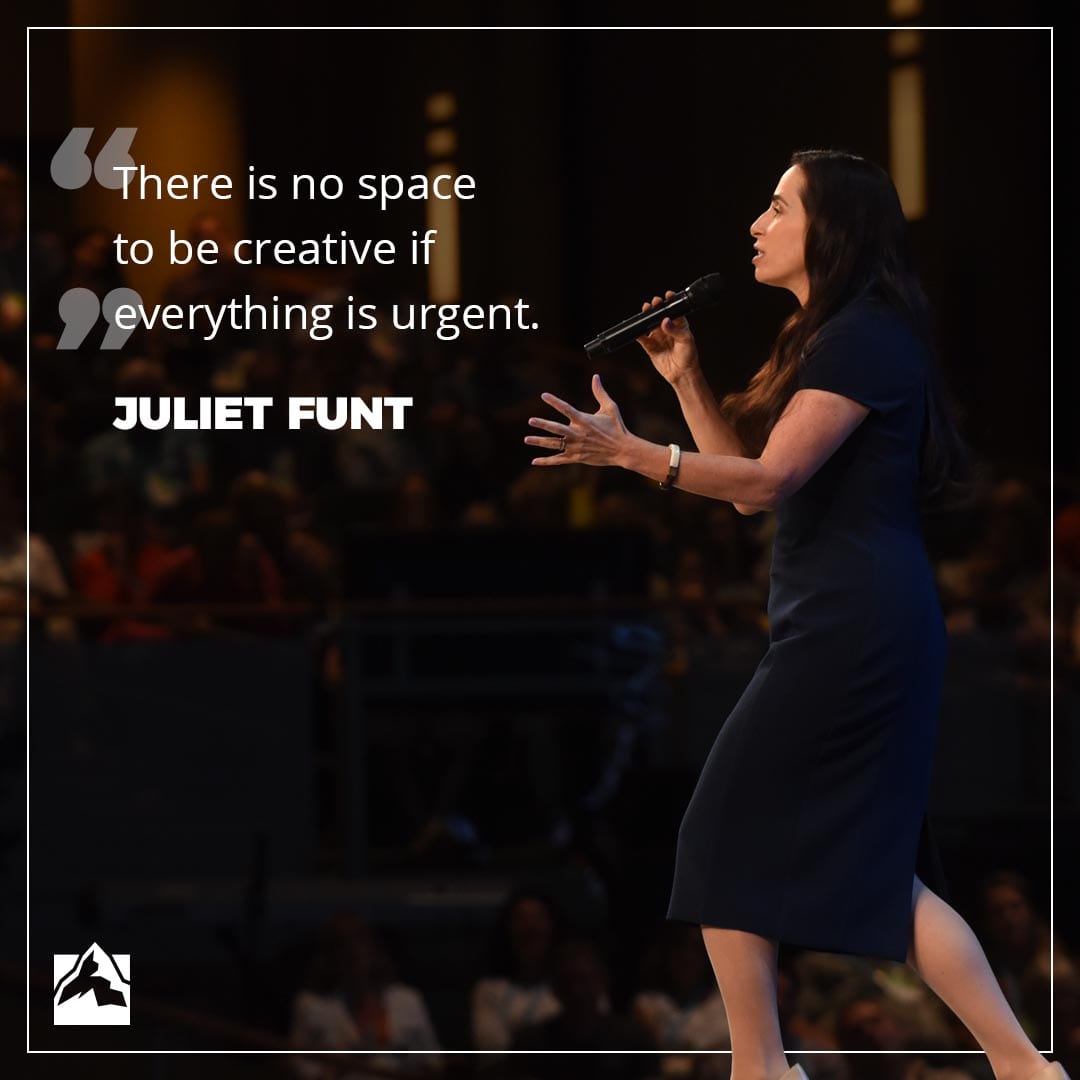
There is no space to be creative if everything is urgent.
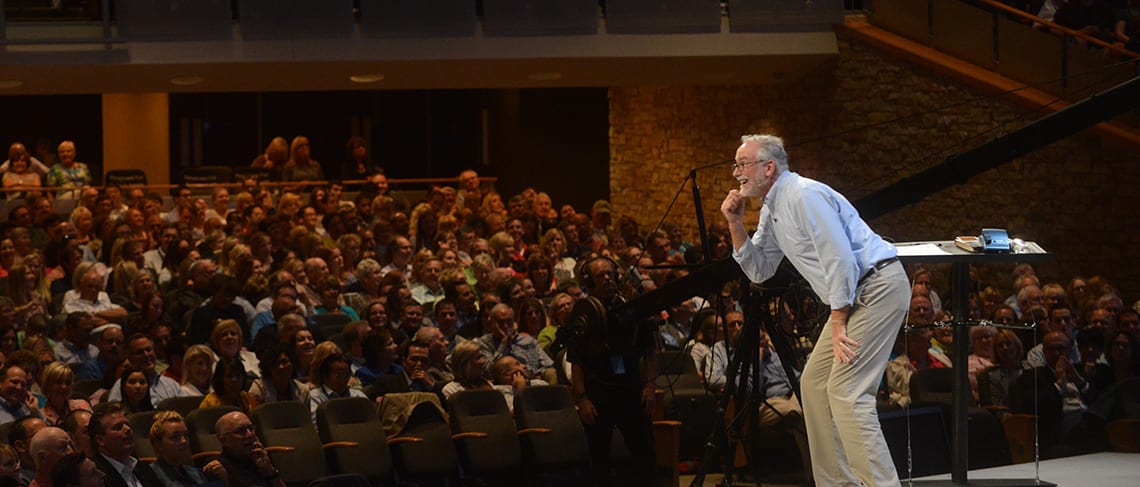
When I finished law school, I bought a yellow pickup truck from my dad. It didn’t have many miles on it and was in pretty good condition. I gave him the cash, he tossed me the keys, and I climbed in. As I was pulling out of the driveway, he tapped on the window, and I rolled it down. He pointed at the hood and said, “You’ll want to change the oil.” I nodded dutifully and drove home.
This seemed to happen every time we got together. And each time my dad told me about the oil, I grumbled under my breath that I’d change the oil when I felt like it and not a minute before.
My dad didn’t mean harm. Quite the opposite. He loved me and knew that people who don’t change the oil in their trucks end up with dead trucks. Because he loved me and didn’t want my truck to die, he told me what I should want to do about it. He was trying to help me avoid something bad from happening, but it backfired in the way it landed with me.
The same thing happens to all of us.
Some of us have been told what we want our whole lives. We’ve been told we should want to go out for sports or not. We should want a college education or a graduate degree or a particular career. We should want to date this person and not the other one. None of it is mean-spirited, of course, and no one means any harm. It just doesn’t sit well with us.
A similar but different problem happens in our churches and schools and faith communities. We’re told by someone what God wants us to do and not do.
We’re told we shouldn’t drink or cuss or watch certain movies. We’re told we should want to have quiet times in the mornings and talk to strangers about a relationship with God. We’re told we should want to go on mission trips and witness to people, and sometimes we do it even if we don’t really know what the words meanbut often, just for a while.
After long enough, what looks like faith isn’t really faith anymore. It’s just compliance. The problem with mere compliance is it turns us into actors. Rather than making decisions ourselves, we read the lines off the script handed to us by someone we were told to respect, and we sacrifice our ability to decide for ourselves.
The fix for all this is as easy as the problem is hard. Instead of telling people what they want, we need to tell them who they are. This works every time. We’ll become in our lives whoever the people we love the most say we are.
God did this constantly in the Bible. He told Moses he was a leader, and Moses became one. He told Noah he was a sailor, and he became one. He told Sarah she was a mother, and she became one. He told Peter he was a rock, and he led the church. He told Jonah he’d be fish food, and well, he was.
If we want to love people the way God loved people, let God’s Spirit do the talking when it comes to telling people what they want. All the directions we’re giving to each other aren’t getting people to the feet of Jesus. More often, the unintended result is they lead these people back to us.
Here’s the problem: When we make ourselves the hall-monitor of other people’s behavior, we risk having approval become more important than Jesus’ love.
Another problem with trying to force compliance is that it only lasts for a while, usually only until the person gets a different set of directions from someone else. Faith lasts a lifetime and will carry us through the most difficult of times without a word spoken.
Telling people what they should want turns us into a bunch of sheriffs. People who are becoming love lose the badge and give away grace instead. Tell the people you meet who they’re becoming, and trust that God will help people find their way toward beautiful things in their lives without you.
The preceding excerpt was a sneak peek from Bob Goff’s new book, Everybody, Always: Becoming Love in a World Full of Setbacks and Difficult People, releasing in April 2018.

Many people attending The Global Leadership Summit come with a dream or a vision.
Sometimes they enter our doors with their dream already in full-fledged operation and they’re seeking skills to improve. But other times they enter our doors wondering what’s next, while their dream has been buried in self-doubt.
Whatever the case, the Summit exists to equip and empower you to accomplish your God-given dream, or inspire and encourage you to fan the flame of your dream, and take action.
 For Heather Ricks, founder and director of Story One, a worship-focused support raising organization, God used the Summit to ignite her dream forward and show her the leader she is. As a result, missionaries around the world are being equipped, churches are being planted and more and more people are discovering Jesus.
For Heather Ricks, founder and director of Story One, a worship-focused support raising organization, God used the Summit to ignite her dream forward and show her the leader she is. As a result, missionaries around the world are being equipped, churches are being planted and more and more people are discovering Jesus.
For 21 years, Heather and her husband lived off raised support in six different ministry settings. Through this experience, she developed a passion for worship-focused support raising and started working in the training department of a mission organization. “During this time, I saw firsthand the discouragement of missionaries, whose training promoted the idea that support-raising is about how much and how quickly one can raise funds,” Heather explains. “Due to my own experiences, I knew that God had greater purposes for fundraising; therefore, I wrote a book called, God and Elephants: A Worshippers Guide to Raising Support.”
“I’ve been told that my ideas were game changers, but I never knew quite how to live them out,” Heather shares. “Each speaker at the Summit took those seeds God had planted in me and helped me see how my ideas really were unique. The speakers gave me a greater vision as to how my ideas could change lives for the better.
“My dream is to see God exalted, lives transformed and workers sent out through the support-raising journey,” says Heather. “It’s my dream that the journey will not just be seen as a task to get money, but as an avenue for everyone to unite as one voice in an act of worship to God and join in His work here and around the world.”
As Heather began to unpack the significance of her dream, the Summit prompted some serious life decisions. “Resigning from my job and starting my own non-profit ministry is not something I took lightly,” says Heather. “Months of prayer and wavering back and forth went into making this decision, but I never felt ready. What I wasn’t expecting was for God to speak to me so directly at the Summit.
 “God confirmed this decision and used the Summit to equip me to do what He knew all along I could do for Him. That following week I began the daunting task of exploring a non-profit ministry, and now it is going full-time.
“God confirmed this decision and used the Summit to equip me to do what He knew all along I could do for Him. That following week I began the daunting task of exploring a non-profit ministry, and now it is going full-time.
“God has taken what seemed like a small, insignificant dream, and turned it into a non-profit ministry. Now I help people discover God on the support-raising journey, as they prepare their hearts to serve in their different ministries around the world.”
 If Heather had never been to the Summit, she wouldn’t have taken that big step of starting a non-profit. “I would still be a receptionist, doodling my dreams in a notebook while scheduling appointments,” says Heather. “The world would be missing missionaries, church planters and ministry workers who are equipped and trained for the support-raising journey, in order to discover God in deeper ways and lead others into worship of Him.”
If Heather had never been to the Summit, she wouldn’t have taken that big step of starting a non-profit. “I would still be a receptionist, doodling my dreams in a notebook while scheduling appointments,” says Heather. “The world would be missing missionaries, church planters and ministry workers who are equipped and trained for the support-raising journey, in order to discover God in deeper ways and lead others into worship of Him.”
“People always told me I was a leader, but through this process, I’ve been surprised by the fact that I’ve been bold enough to really be one.”
“Many people I’ve known have struggled with the fact that a good portion of the Summit is secular,” Heather shares. “However, no one can discount the fact that, from beginning to end, this conference is bathed in prayer. As a result, God speaks in powerful ways as He takes the knowledge of the world and turns it into wisdom for His kingdom purposes.
“Come with an open heart and allow God to use others, regardless of their situation, to speak truth to you. It’s worth it!”
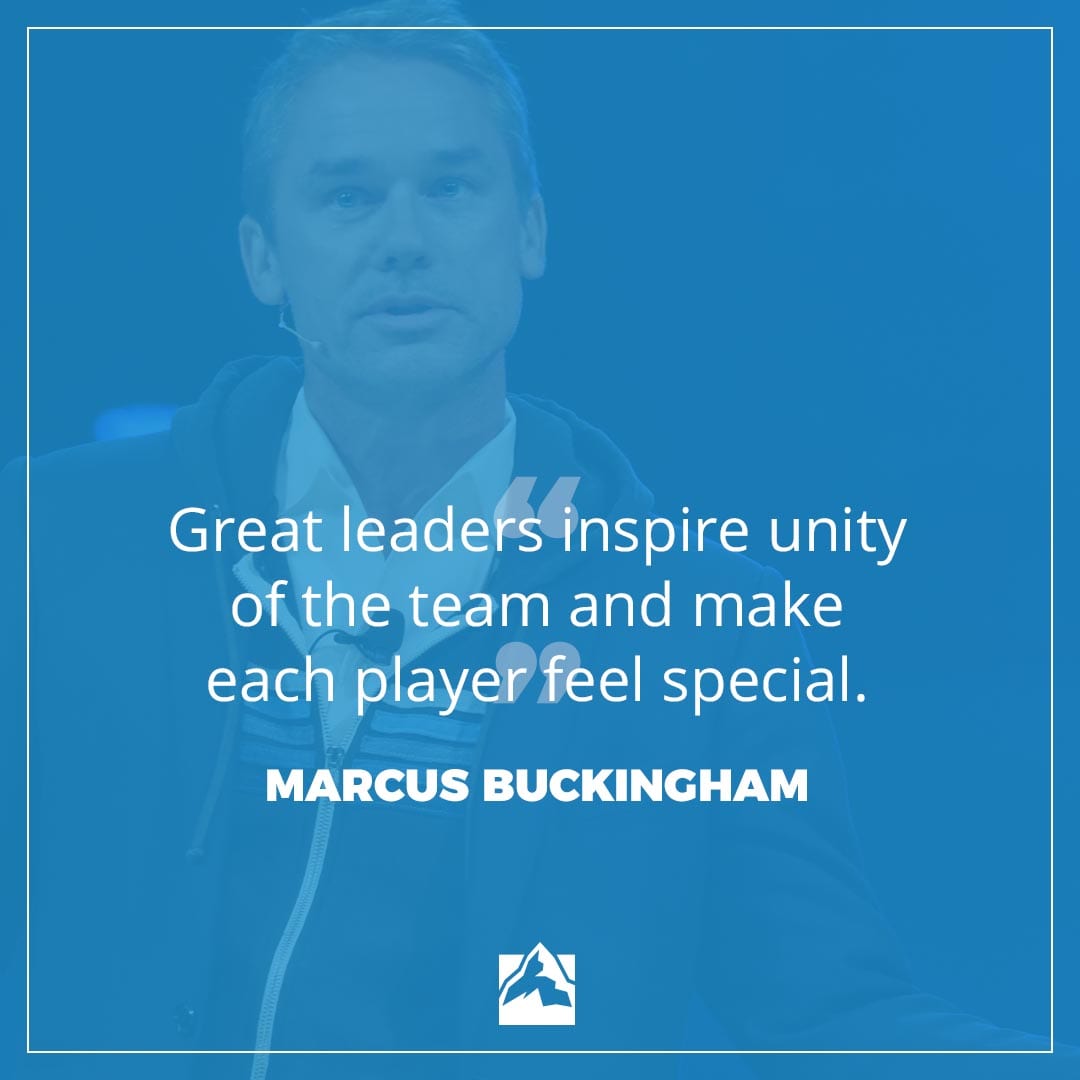
Great leaders inspire unity of the team and make each player feel special.
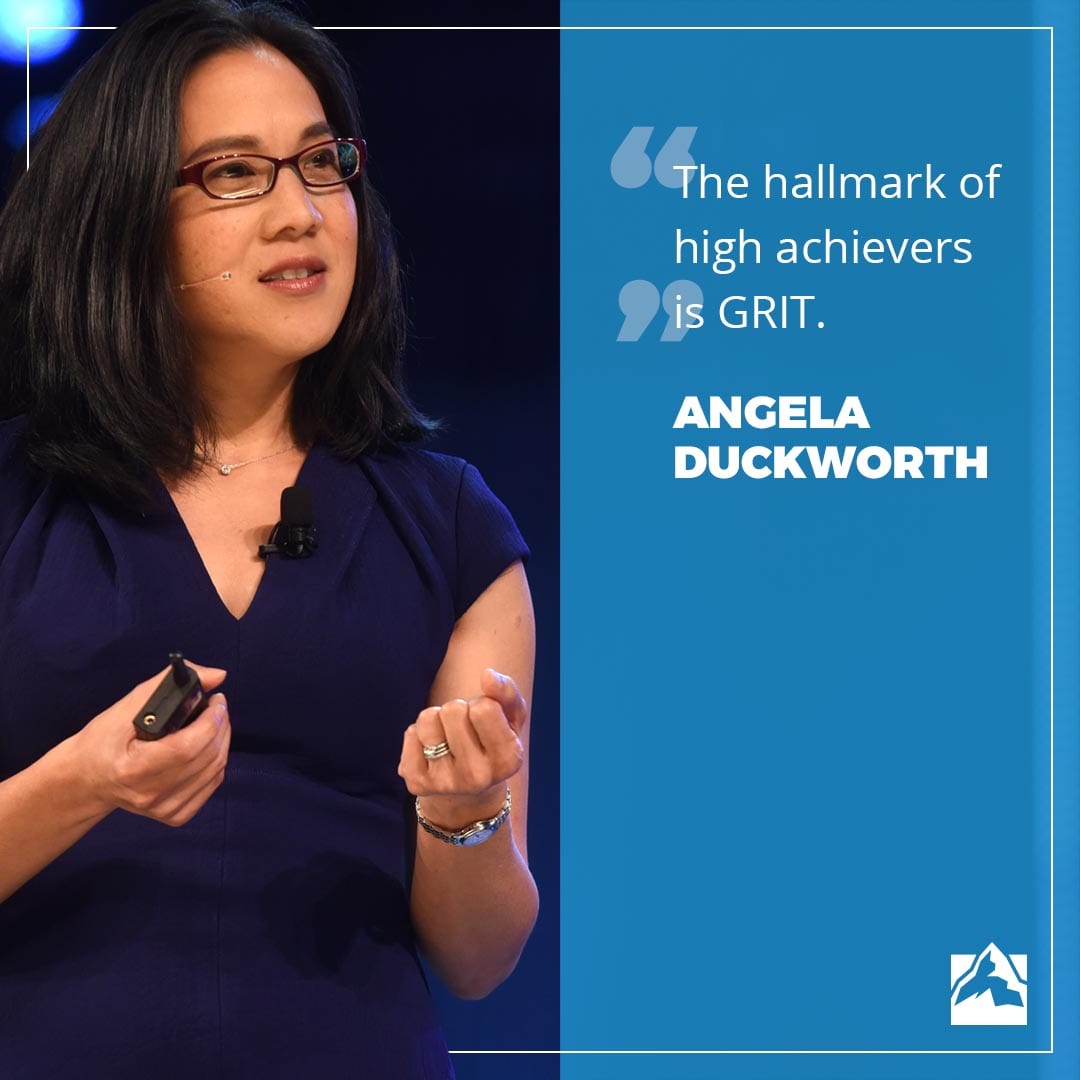
The hallmark of high achievers is GRIT.

Get free, instant access to GLS Podcast Episode Show Notes. Leverage episode summaries, key takeaways, reflection questions, resources mentioned, related links and applicable downloads, including Show Notes PDF and Episode Audio File (MP3).
As faith-centered leaders, we can become God’s instruments to create the future. This episode of the GLS Podcast features Erwin McManus—senior pastor of MOSAIC, a church in Los Angeles known for its innovation, creativity, diversity and social entrepreneurism. In this insightful message, Erwin challenges leaders to affect the future by cultivating human creativity and telling God’s story with freshness and authenticity.
“Some are born great, some achieve greatness, and some have greatness thrust upon them.” – William Shakespeare, Twelfth Night
Erwin’s Doritos Super Bowl Commercial

You may think I made a mistake in the title—shouldn’t it be ‘Fearless’ Leadership? No, it’s not a mistake. It is very intentional!
Fear is a natural human emotion, created by God, that protects us from doing foolish things. Like any emotion, it’s critical we hold fear in the right balance within our leadership. As leaders we should neither be full of fear nor completely without fear. We need to be fear-less leaders.
Growing up on a farm in a South Indian village was a dream childhood, including carefree hours spent playing with friends among the rubber trees beside the river where we swam and fished—an idyllic playground. The tropical hum of cicadas was usually punctuated only by our laughter and fun.
Until the inevitable shriek, “Snake!”
As leaders we should neither be full of fear nor completely without fear.
Our farm was home to a number of poisonous snakes. From a young age, we were taught to fear them, immediately calling for adult help when we spotted one on the farm. My grandfather had seen too many fatal bites to allow ignorant fearlessness to determine our fate. So, for our own preservation, we were taught to fear the snakes.
Thirty years later, I went to visit one of our leaders who had started work among a group of snake charmers. These people handle snakes for work and play; their children are at ease among the reptiles I was taught to fear! It was fascinating to watch from a distance as the snake charmers performed, coaxing the cobras out of the basket until the magnificent animals were swaying to the music.
As the chief guest, I was then invited forward so they could honour and welcome me with a garland—a common Indian custom. Only this time, the garland to be draped around my neck was actually a large king cobra!! All my childhood instructions and memories flooded back. I was paralyzed with excessive fear, unable to move forward.
They laughed at me and assured me of my safety. Culturally, my refusal to accept their welcome and hospitality could offend and even end our work among them. Our leaders reinforced their assurance, but I still couldn’t move. Thankfully one of our senior leaders saw my genuine predicament and stepped forward, inviting them to place the garland on his neck instead of mine. Today, we still have a thriving work among this people group.
This experience caused me to consider the role of fear in my leadership. How do I avoid ignorant fearlessness while refusing to stay paralyzed by excessive fear? How do I ensure I lead from a fear-less position?
These four key principles have helped me:
2 Timothy 1:7 says that God has not given us a spirit of fear. A fearful spirit is never from God. Rather, it is the devil who comes to steal, kill and destroy.
Resist destructive fear—send it back. “Return to Sender!”
We know fear is a natural human emotion that moderates our behaviour. Fearing God is a great behavioural moderator. The fear of God is an essential cornerstone of a God-centred leadership style.
The famous 23rd Psalm tells us, “Even though I walk through the valley of the shadow of death, I fear no evil, because you are with me.”
What we meditate on becomes magnified in our lives. The more we focus on the problems, the more fear intensifies its grip and leaves us paralyzed. Conversely, the more we allow God’s promises and greatness to dominate our thinking, the less fear can grip us. Intentionally practice the presence of God in your life and continue to meditate on His reassuring promises.
…don’t allow fear to paralyze you and prevent you from stepping forward into all God has for you.
1 John 4:18 tells us that perfect love casts out fear. In 1 John 4:8 we also read that God is love. Therefore, the way we discover perfect love is to allow more of God into our lives. And as we allow more of God into our lives, the less room there is for fear.
This is an irony of the Christian life. If you are struggling with fear in your leadership, the antidote you need is not courage—it is love.
Would you join me today in the pursuit of fear-less leadership? Do not attempt to rid yourself of all fear or you will miss out on healthy, God-given, protective behavioural moderation. However, don’t allow fear to paralyze you and prevent you from stepping forward into all God has for you.
Instead, let’s be leaders who find godly balance as we serve and fear Him.
“We welcome and encourage comments on this site. There may be some instances where comments will need to be edited or removed, such as:
If you have any questions on the commenting policy, please let us know at heretoserve@globalleadership.org”
Recent Comments